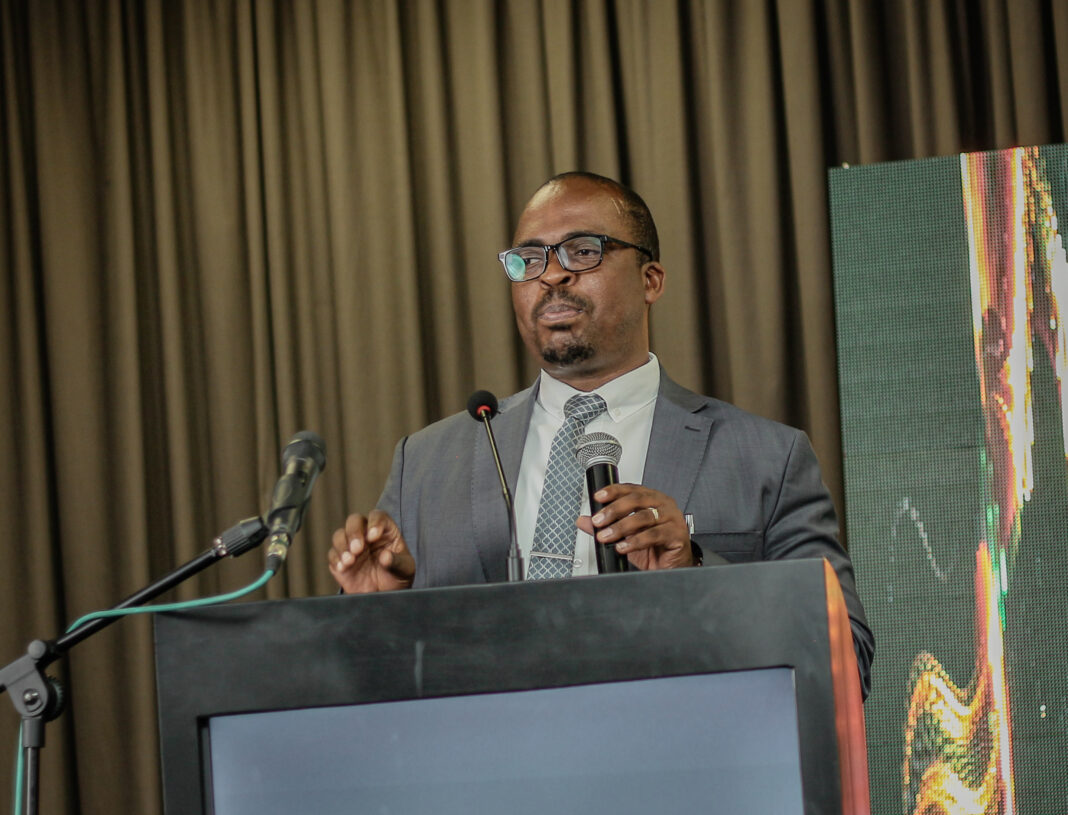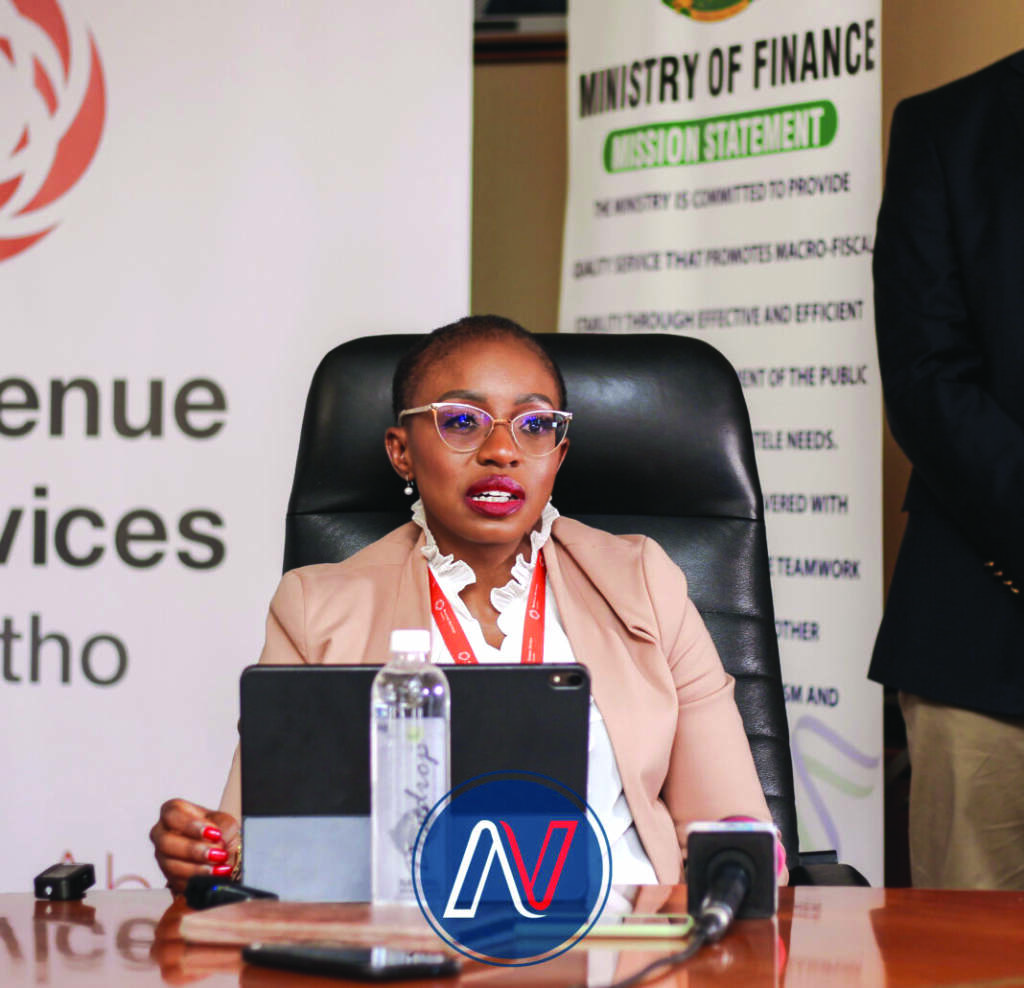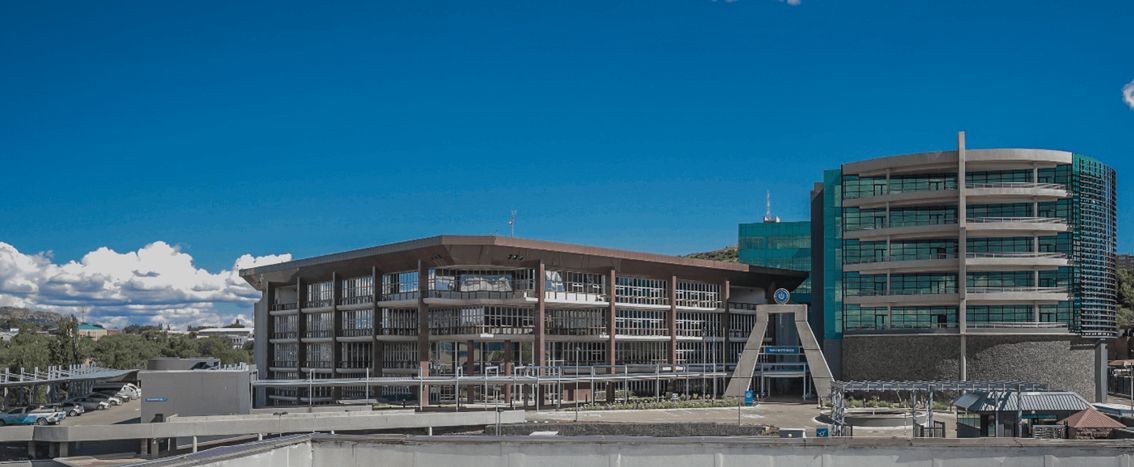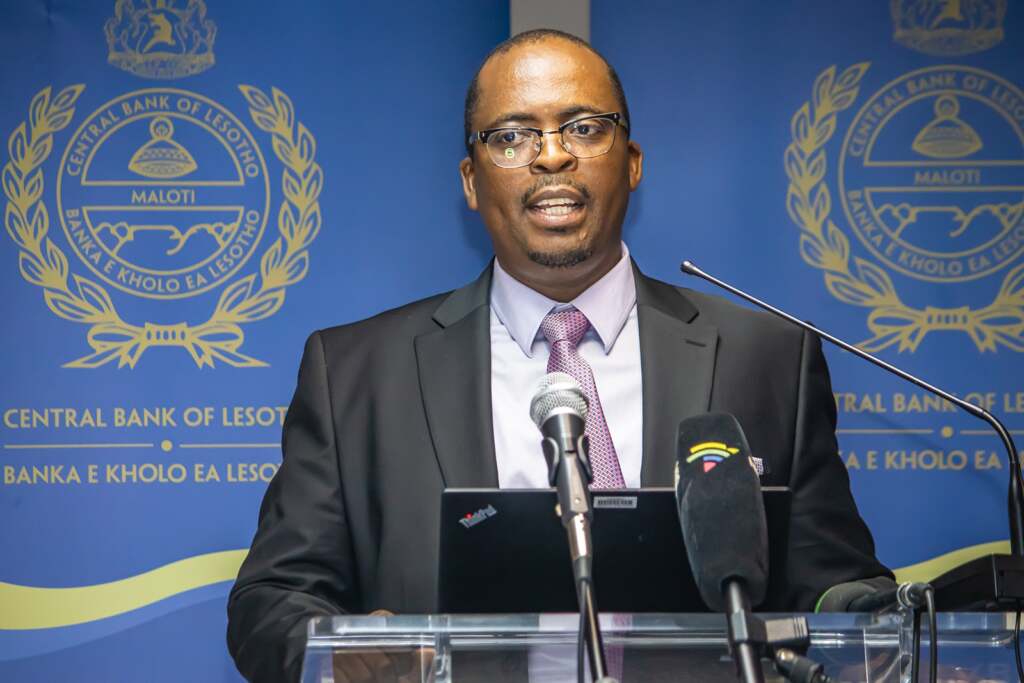Staff Reporter
Lesotho recorded a deficit of 13.3 percent of the Gross Domestic Product (GDP), estimated at over M5 billion, in the final quarter of the 2022/2023 financial year from a surplus in the previous quarter, the Central Bank of Lesotho (CBL) data showed last week.
“The government budget balance deteriorated in the last quarter of the 2022/2023 fiscal year relative to a surplus recorded in the preceding quarter,†the governor of the CBL, Dr Emmanuel Maluke Letete, said last week.
“The fiscal balance was estimated to have recorded a deficit equivalent to 13.3 percent of the GDP compared to a surplus of 3.0 percent of GDP in the previous quarter,†Dr Letete added.
He was presenting the statement of the Monetary Policy Committee (MPC) of the central bank following the committee’s 101st meeting that was held on Monday.
In maloti terms, considering the World Bank’s estimation that Lesotho’s nominal GDP in 2022 was $2,405.9 billion (over M40 billion), the deficit for the January-March period was over M5 billion from a surplus of over M1.5 billion for the October-December quarter.
A deficit of over 10 percent of the GDP is considered one of the largest in the world.
In January this year, it was reported that Belgium recorded a budget deficit of 5.1 percent of its GDP in the third quarter of last year. This was said to be the largest deficit among Eurozone countries.
It was reported that for the entire Eurozone, the average deficit was 3.3 percent.
It is not clear whether Lesotho has ever previously recorded a larger deficit as a percentage of the GDP in any quarter.
Dr Letete also disclosed on Monday that domestic economic activity remained weak in the first quarter of 2023. He said the textile and clothing manufacturing subsectors had stagnated as some firms closed.
“Poor performance was also notable in other industries such as transport and construction. The near-term outlook of the economy projects an improved performance, largely on account of construction activities related to the LHWP (Lesotho Highlands Water Project) Phase III Project,†he said.
He indicated that the money supply increased by 17.4 percent in March 2023 after rising by 1.7 percent in February 2023.
The rise was mainly due to an increase in both Net Foreign Assets (NFA) and Net Domestic Assets (NDA), according to the governor.
“This was at the back of a significant increase in commercial bank’s foreign assets following transfers related to the Polihali project and a draw down in government deposits held at both CBL and commercial banks. Private sector credit score rose due to increases in credit extended to both businesses and households,†Dr Letete said.
He also mentioned that the stock of public debt was estimated to have declined to 53.5 percent of GDP in the first quarter of 2023 from 54.4 percent of DGP recorded in the previous quarter.
“In summary, global economic prospects of 2023 have remained weak. The domestic economic activity has declined in the first quarter though projected to improve in the medium-term on account of construction activities associated with the LHWP Phase II,†Dr Letete said.
He said having considered the Net International Reserves (NIR) developments and outlook, regional inflation and interest rates outlook, domestic economic conditions, and global economic outlook, the MPC decided to revise the NIR target floor to USD690 million.
“At this level, the NIR target will be sufficient to maintain a one-to-one exchange rate peg between Loti and the Rand,†he said.
he added that the MPC also decided to increase the CBL rate by 25 basis points; from 7.50 percent per annum to 7.75 percent per annum.
Summary
- 3 percent of the Gross Domestic Product (GDP), estimated at over M5 billion, in the final quarter of the 2022/2023 financial year from a surplus in the previous quarter, the Central Bank of Lesotho (CBL) data showed last week.
- “The government budget balance deteriorated in the last quarter of the 2022/2023 fiscal year relative to a surplus recorded in the preceding quarter,†the governor of the CBL, Dr Emmanuel Maluke Letete, said last week.
- “This was at the back of a significant increase in commercial bank’s foreign assets following transfers related to the Polihali project and a draw down in government deposits held at both CBL and commercial banks.

Your Trusted Source for News and Insights in Lesotho!
At Newsday Media, we are passionate about delivering accurate, timely, and engaging news and multimedia content to our diverse audience. Founded with the vision of revolutionizing the media landscape in Lesotho, we have grown into a leading hybrid media company that blends traditional journalism with innovative digital platforms.









